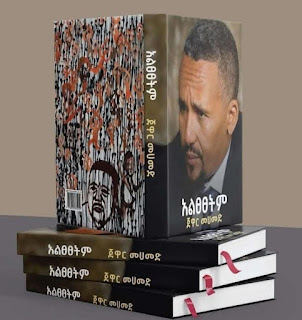From the IDP kids' diary
Kindnew Desalew
My name is Kindnew Desalew. I am 12 years old and I am living in the camp for internally displaced people (IDP) in Debre Birhan. My father went to Wollega fleeing the famine in Wollo and lived in Wollega for 39 years. My mother is 35 years old. Our school was near our home. We were sharecroppers. My father goes and comes to Desse town since he has children there too.
I want to be an engineer and make roads and bridges and live in Addis Ababa or elsewhere since my home village of Sire is scary now. I experience nightmares and I see the Shene army coming in my dream. I sleep walk. Wollega is more fertile than this place. We live here without work. We just sit in the camp. I have a friend called Chaltu there in Sire. I think I will not marry her even if I get the chance. In our free time we children in the camp here talk about what we used to eat back home including dokma, about our cattle, football, and how we escaped. We were escorted by the national army when we left our area. My father survived by hiding in a forest, a burial ground and scaring the predators by the sound of an axe. In our area there is a church. There is a school. There are students who are still learning and who completed grade twelve and graduated from university. I have siblings of 11, 8, and two years of age. My mother and father are not educated. My uncle and cousin are still in Sire since they are comparatively safe because they are members of the local committee. My uncle immigrated from Wama to Sire.
I know a man called Sisay Asnake who was very rich in our area. He had ninety cattle and three farmers and twelve hectares of land. The Shenes took all of his property and while he was flying away using a bike they stopped him at Dibi Dima Kebele and killed him. Both his mother and wife got insane. His mother left for Wollo and his wife is living in Sire.








